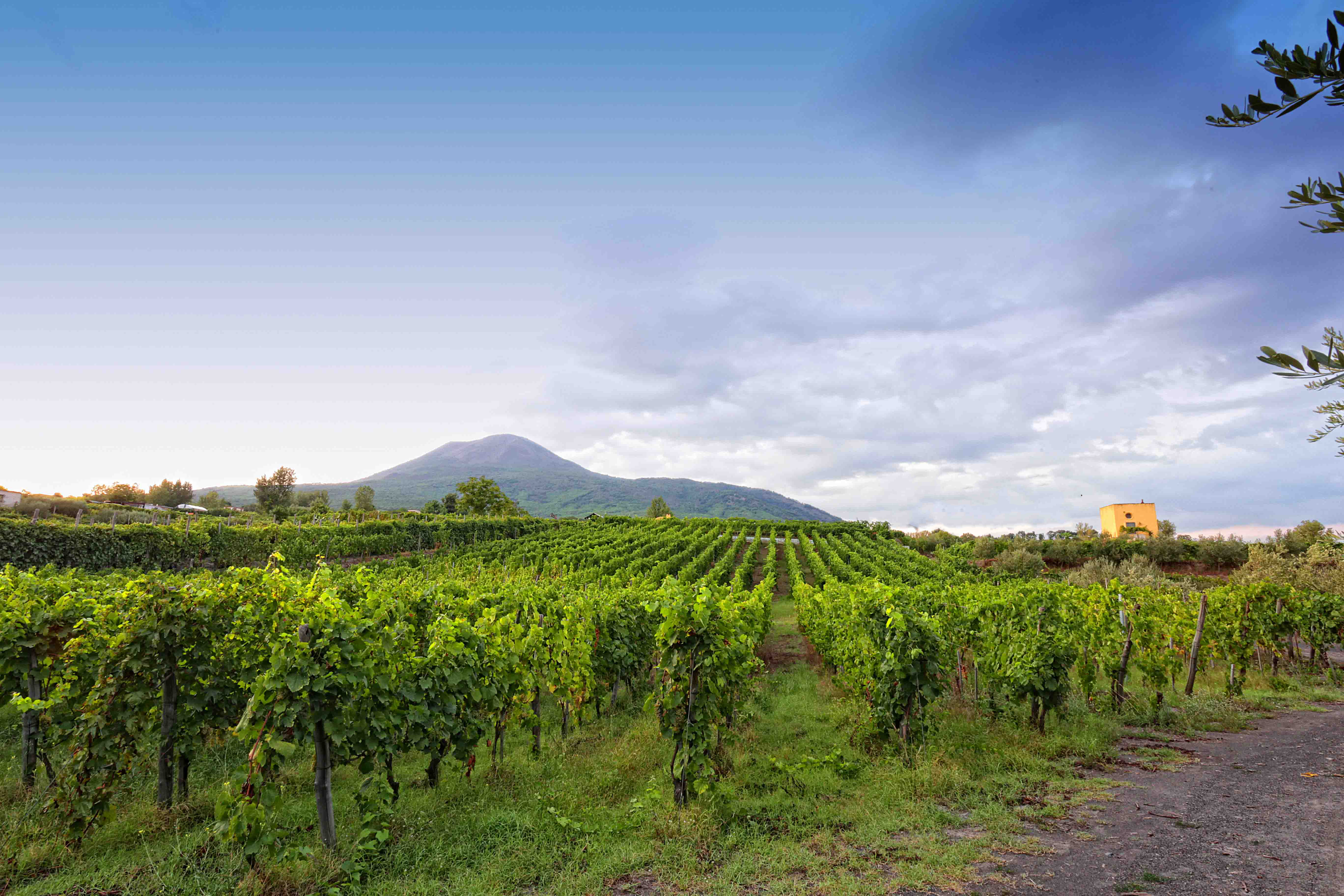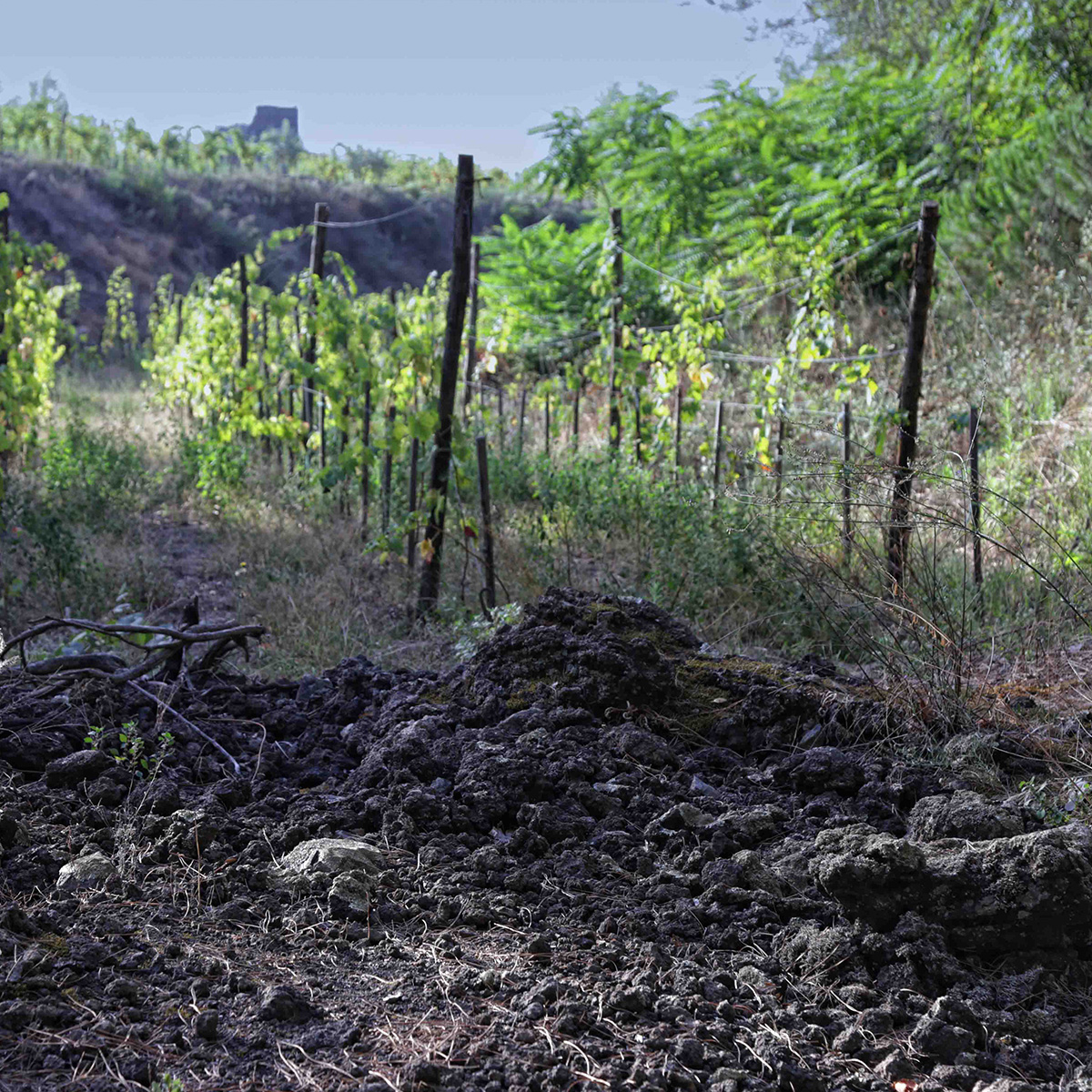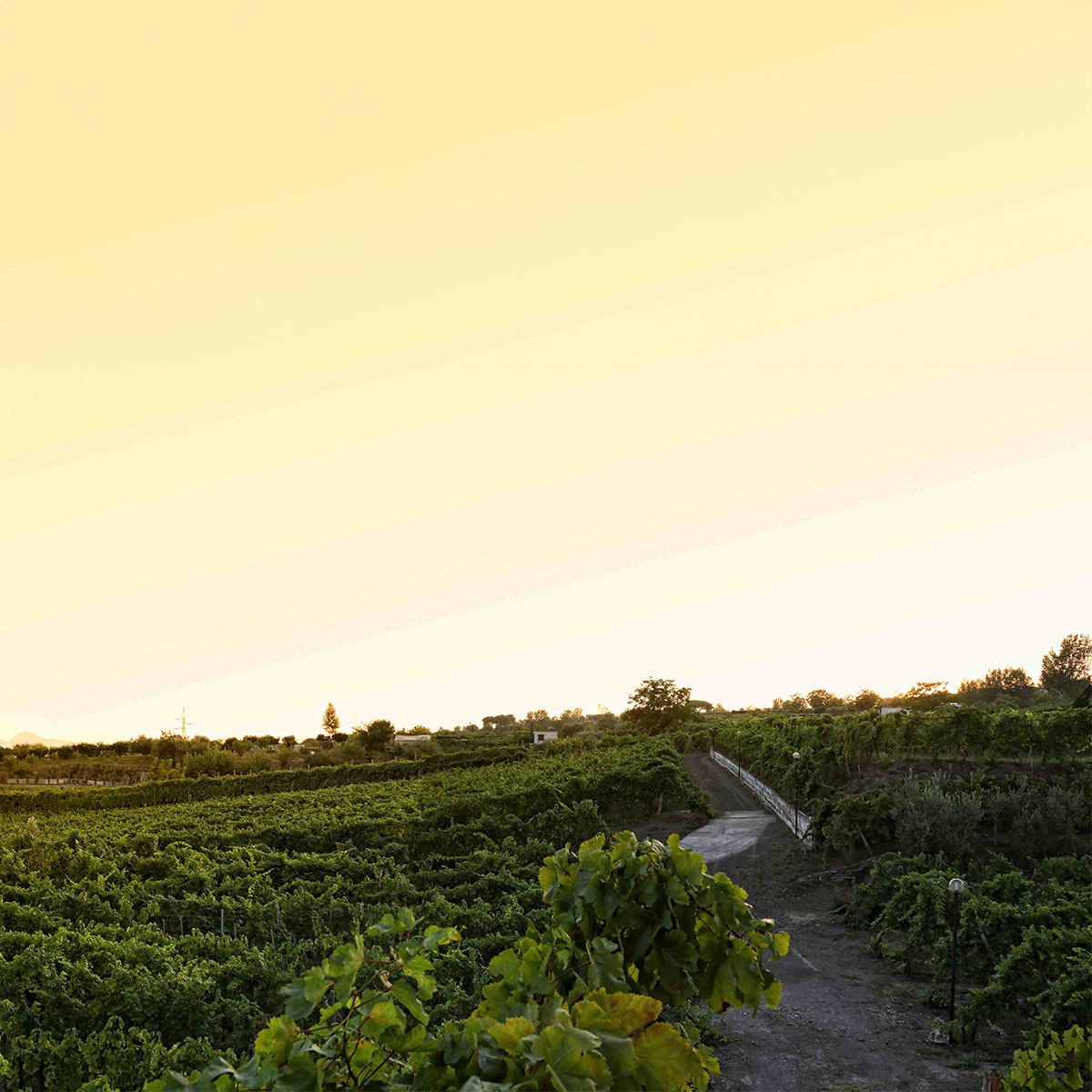
The Sorrentino family have cultivated land on Vesuvius’ southern slopes for decades. Mount Vesuvius is a formidable, active volcano that has shaped the landscape around Naples for over 300,000 years. Vines and crops have been cultivated here for thousands of years, thriving in the fertile soils created by volcanic eruptions. The area's remarkable beauty, mild climate and agricultural wealth were even recognised by the Ancient Romans, who named the region Campania Felix (“joyful countryside”).
In the early 90s, Paolo Sorrentino and his wife Angela expanded their vineyards to 35 hectares of vines. Today they are helped by the next generation with their children Benigna, Maria Paola and Giuseppe, all involved in the family winery. The Sorrentino vineyards are planted between 200 and 700 metres above sea level on extremely heterogeneous volcanic soils. These are loose and complex, with pumice, sand and lapilli derived directly from a succession of eruptions. The resulting high porosity allows the vines to be grown without grafting.
Their vineyards are planted with the indigenous varieties Caprettone, Coda di Volpe, Falanghina, Catalanesca, Aglianico and Piedirosso. On certain sites, they also grow tomato varieties such as the Piennolo among the vine rows, in homage to the traditional so-called ‘promiscuous cultivation’ that once dominated the Italian viticultural landscape.
The Catalò is made with the Catalanesca variety grown at an elevation of 400 meters above sea level. After pressing, the grapes are carefully fermented and aged in stainless steel. The wine has alluring aromatics and a complex balance between weight and freshness, typical of this unique and rare variety. The Catalanesca grape was imported to Campania from Catalonia in the 15th century and today is only found on small plots in the province of Naples. For a long time, this wine was classified as Vino d’Italia since, until recently, Catalanesca was not permitted in Campania DOC wines.
The Vesuvio Lachryma Christi is made from 80% Caprettone blended with 20% Falanghina, grown 500 meters above the sea. After harvesting and temperature-controlled fermentation, the wine is aged on its lees for at least eight months before racking and blending. The resulting wine is powerful yet elegant with complex aromatics. The Latikadea Falanghina is grown at a slightly lower elevation of around 300 metres. It is fermented and aged in stainless steel, followed by an additional two years of ageing in bottle before release. It displays beautiful aromatics and remarkable structure, with an exceptionally long finish.
All wines from this producer
Producer | Wine | Product Code | Features | Style | |
|---|---|---|---|---|---|
| Sorrentino | `Catalò` Catalanesca | SO501 | W | ||
| `Latikadea` Falanghina | SO502 | W | |||
| `Vigna Lapillo` Lacryma Christi Bianco | SO503 | W |

